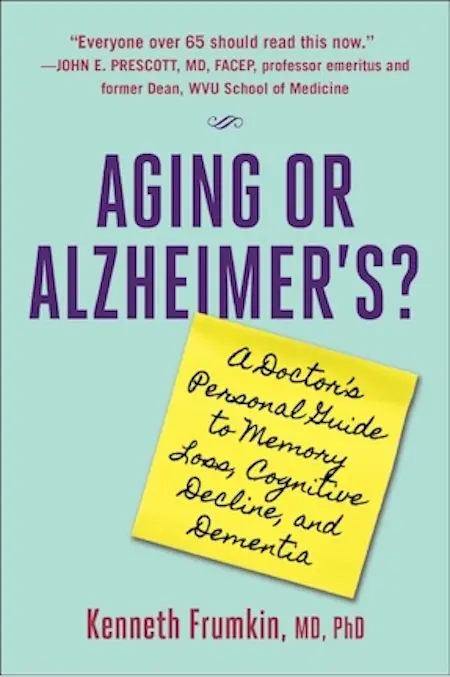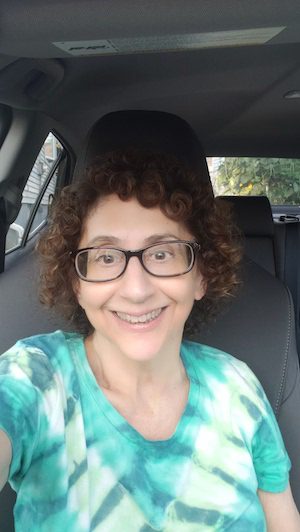The Best Free Resources for Information on Aging or Alzheimer’s
Excerpted and edited from:
Do It Yourself:
Download Scientific References & Journal Articles For FREE!
The majority of the 535 primary information sources (citations) for Aging or Alzheimer’s? were authored by academic researchers and published in scientific journals. Written in the language used to communicate with peers on topics familiar to both the writer and the reader, these works were never directed towards the general public. However, you can acquire the bulk of my original source material (or any other published scientific paper) the same way I did. Similar to journals, the book’s sources are identified by superscript numbers throughout the text and listed in the REFERENCES section at the end.
Many readers are unaware that any internet access comes with the equivalent of a free (taxpayer-funded) library card providing online privileges at the National Institutes of Health’s National Library of Medicine. At their website (pubmed.gov), anyone can readily access the authors’ summary (known as the “Abstract”) for EVERY listed paper, and other valuable information, in real time, and without registering or fees.
Additionally, many of these citations come with free full-text copies available for download by simply clicking through from the same site. They are archived in “PubMed Central (PMC),” a repository of articles maintained by the National Institutes of Health (NIH) and other organizations that fund scientific research. Such organizations often require authors they support to upload a copy of their accepted manuscripts to PMC. A great many publications cited in the book fall into this category.
How to:
Online access to the National Library of Medicine (https://pubmed.ncbi.nlm.nih.gov/) is free and easy. Instructions for use can be accessed at: https://www.ncbi.nlm.nih.gov/guide/howto/obtain-full-text/ or https://www.google.com/url?sa=t&source=web&rct=j&opi=89978449&url=https://www.nlm.nih.gov/services/faqimages/locatorplus/Access_Full_Text_at_NLM.doc&ved=2ahUKEwi8maDct9eKAxXak4kEHUWzFpwQFnoECB0QAQ&usg=AOvVaw22Hm7a5xP_PBPHmffYpQut
Or simply:
1. Go to (https://pubmed.ncbi.nlm.nih.gov)
2. Enter enough information to identify the paper you are seeking. Usually, the first author’s name and initials, the year, and/or a unique portion of the title are more than adequate to create a list of similars.
3. Find the specific paper in any list that appears.
4. Look for a box labeled “Free full text” or “Free PMC article” and click.
5. Clicking on the title of the article you want to view should give you access to the full text of the article.
Actually GO TO A LIBRARY!
For a change, try at “Brick and Mortar” library (the big building with the shelves full of actual printed paper books). Reference librarians there are trained and willing to help. Systems and resources will vary by locality. Check their website and/or contact a reference librarian. Local library memberships often include free electronic access to larger regional and statewide libraries. These larger libraries often subscribe to online databases containing publications you seek.
Interlibrary loans are a means to acquire electronic versions or photocopies of difficult-to-access works. There can be a charge, particularly if photocopying or mailing is required.
Additionally, many colleges and universities offer some level of online or in-person library privileges to alumnae. Check with your alumnae association.
Other Suggested Resources:

Helpful Organizations
AARP (www.aarp.org).
Always informative and eminently practical, I read their periodicals regularly and usually learn something of value. I find AARP to be an excellent source of accurate health information for the general public and frequently recommend AARP as a source to friends and family.
Here’s just one example: “Don’t Just Google Your Symptoms.How to Find Credible Health Info Online” (published in the AARP Bulletin, May 2023, pp. 16, 18, 19.)

Consumer Reports (www.consumerreports.org)
In addition to their product ratings, Consumer Reports regularly offers consistently excellent verified information on health, healthcare, Technology, nutrition, finances, and safety.
The Alzheimer’s Association (www.alz.org)
“Formed in 1980, the Alzheimer’s Association is the leading voluntary health organization in Alzheimer’s care, support and research.”
The American Academy of Neurology
They maintain a valuable Brain & Life website (www.brainandlife.org) and offer a free bimonthly print magazine by the same name. The website includes a searchable database with disorder-specific information about many common brain conditions, including the dementias.
Alzheimer’s Disease International (www.alzint.org)
They partner with 120 countries, the World Health Organization and others and publish a yearly World Alzheimer’s Report.
The National Institute on Aging (NIA)
One of the National Institutes of Health, NIA is the lead federal agency for research on aging, Alzheimer’s disease, and related dementias (www.nia.nih.gov). They offer excellent free publications specifically directed at our needs.
The World Health Organization (WHO)
(www.who.int) issues periodic reports on dementia. WHO’s “Comprehensive Global Action Plan for the Public Health Response to Dementia” identifies priority action areas, sets targets for countries to achieve, and provides governments with a framework to develop their own national dementia plans.
The Washington State Dementia Action Collaborative
(www.dshs.wa.gov/altsa/dementia-action-collaborative) publishes the Dementia Road Map: A Guide for Family and Care Partners. It is comprehensive, up to date, readable, free, and available from the Washington State Department of Social and Health Services.
A Place for Mom (www.aplaceformom.com)
CAUTION: This is (very openly) a for-profit senior care referral service advertised as “free to families.”
While researching the book, I signed up for their email newsletter. I have no opinion of or experience with the referral services they offer, but their informative newsletter has been an excellent source of readable and practical information on multiple facets of aging. The valuable general information is easily distinguished from their available services without surprise sales pitches, spam, or other digital intrusions.
Books and Reports Mentioned in Aging Or Alzheimer’s?
Medical textbook:
Budson, A. and P. Solomon. Memory Loss, Alzheimer’s Disease and Dementia. Philadelphia: Elsevier, 2002. This is the most recent medical textbook I referenced on Alzheimer’s disease. While intended for the academically inclined and healthcare providers (and I have not read it cover-to-cover), it is clearly written, up-to-date, comprehensive, aimed at a more general audience, and offers considerable practical advice.
Caregiving in general:
A recommendation from my personal life and my practice: McFarlane, R. and P. Bashe. The Complete Bedside Companion: No-Nonsense Advice on Caring for the Seriously Ill. New York: Simon & Schuster, 1998. Very little about caring has gone out of date in the years since this was published. I have recommended The Complete Bedside Companion for decades, given away any number of copies, and frequently handed out six of its typically enlightening pages to families of failing patients along with my recommendation that they consider buying the book. One can always find used copies online for as little as $2-$7. The content is exactly as described in the title. The five-hundred-plus pages contain invaluable, practical advice, ranging from changing sheets on a bed with someone in it to “Preparing for the Worst.” Energizing, organizing, and cooperating with family members is particularly well discussed. If you are caring for anyone with a debilitating illness, I am comfortable that they will benefit from your reading and sharing this book.
The National Academies Press (NAP) exists to publish (digitally and for free) the hundreds of reports issued yearly by the National Academies of Sciences, Engineering, and Medicine (www.nationalacademies.org).
These prestigious, private, nonprofit institutions offer expert review, analysis and advice on national and international challenges, including those about which Aging Or Alzheimer’s? was written. Twelve NAP reports were cited in that work.
Local and Regional Resources:
State and local health departments
Social services (hospital, community-based, faith-based)
Area Agencies on Aging
Senior community centers
Public library
Volunteer and charitable organization
To Be Avoided, see:
What Does “Clinically Proven” Actually Mean?
https://ouragingbrains.com/what-does-clinically-proven-actually-mean/
Language of Hope: Can We Trust “Breakthroughs” in Memory Loss, Cognitive Decline, and Dementia?
https://ouragingbrains.com/can-we-trust-breakthroughs-in-memory-loss-cognitive-decline-and-dementia/
Playing It Safe in The Supplement Aisle
https://ouragingbrains.com/playing-it-safe-in-the-supplement-aisle-copy/
For this and other blog posts on related topics, go to:
See also:

Comments Welcome
The post The Best Free Resources for Information on Aging or Alzheimer’s appeared first on ouragingbrains.
Originally Published on https://agingoralzheimers.com/
Kenneth Frumkin, PhD, MD, FACEP studied physiological psychology (the interaction of the body’s basic biologic mechanisms with behavior) in college and graduate school. He earned his Masters and Ph.D. degrees from McGill University for his work on the relative contributions of nature and nurture to the ingrained survival mechanism of poison-avoidance in rats. After two years of research at the U.S. Army’s Biomedical Laboratories, Ken went on to medical school and a residency in emergency medicine. His 36-year medical career was split between community hospital emergency departments and teaching, research, and practice in military academic medical centers.
Board-certified in his specialty, Dr. Frumkin is the author of over three dozen peer-reviewed publications and textbook chapters in psychology and medicine. His article “How to Survive the Emergency Room” published in the AARP Bulletin, was a 2022 National Mature Media Merit Award winner. A complete list of publications and complete resume are at www.linkedin.com/in/KennethFrumkinPhDMD . A Fellow and Life Member of the American College of Emergency Physicians and their Geriatric Emergency Medicine Section, Dr. Frumkin is also an Emeritus member of the Society for Academic Emergency Medicine and their Academy of Geriatric Emergency Medicine. Having retired as a civilian employee of the Department of the Navy in 2017, Dr. Frumkin is currently a volunteer member of the academic faculty at the Emergency Medicine Residency, Naval Medical Center, Portsmouth, Virginia.
Dr. Frumkin writes from the perspective of a practiced author and researcher and, most importantly, as a fellow boomer with “skin in the game.” He, too, is seeking the answers to nearly every older-person’s questions about their fluctuating memories and the possibility of progressive cognitive decline. His book "Aging or Alzheimer’s? A Doctor’s Personal Guide to Memory Loss, Cognitive Decline, and Dementia" comes out November 5, 2024. (AgingOrAlzheimers.com)


























